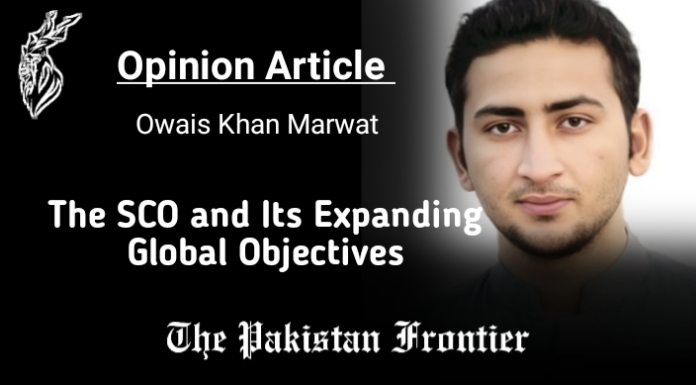The Shanghai Cooperation Organization (SCO) meeting, hosted via videoconference on July 4th by India, was Putin’s first multilateral summit. He is keen to demonstrate that the West has failed to isolate Moscow over its invasion of Ukraine in 2022 and that this represents a disruption of the global order.
A growing China threatens the liberal global order led by the United States. China is part of a significant regional trade agreement (RCEP), has spearheaded the creation of new development banks (Asian Infrastructure and Investment Bank and the New Development Bank), introduced new initiatives (the Global Security Initiative and the Global Development Initiative), and assisted in negotiating a peace agreement between rival Middle Eastern nations (the Iran-Saudi Arabia peace deal).
Furthermore, China has played a significant role in forming multilateral organizations, such as the Shanghai Cooperation Organization (SCO) and the BRICS.
The objectives of the SCO include fortifying ties between members, encouraging more collaboration, and working together to safeguard peace and security, and creating a “new, democratic, just and rational political and economic international order.” Established in 2001, this multilateral organization has as members China, India, Kazakhstan, Kyrgyzstan, Russia, Pakistan, Tajikistan, and Uzbekistan, as well as Afghanistan, Belarus, Iran, and Mongolia as observer states; and as “Dialogue Partners” Armenia, Azerbaijan, Cambodia, Nepal, Sri Lanka, and Turkey. The SCO is mighty and influential because these countries account for a large chunk of Asia, 30 percent of the global GDP, and 40 percent of the world’s population.
Qin Gang, China’s Foreign Minister, bragged about Beijing and the Chinese Communist Party (CCP) while underlining essential problems of concern. These included significant security concerns, such as maintaining vigilance against the East Turkestan Islamic Movement. He also used the occasion to highlight important Chinese projects, such as the third Belt and Road Forum for International Cooperation.Several nations have also made an effort to join the SCO. Ascension procedures were finished during the foreign minister’s session, granting Iran entry into the organization. In addition, Belarus’s application process to become a member of the SCO was expedited.
More profound debates and pressure to execute important agreements were present during India’s 2023 leaders’ conference. These heads of state achieved these results even though the leader’s summit was virtual, in contrast to the SCO summits attended by foreign ministries and defense personnel. There is conjecture that this could be because of a wish to avoid upsetting its Western partners if Russian President Putin were to enter the nation—a similar issue South Africa is experiencing in hosting the summit of BRICS leaders. This move lessens the influence of the leaders’ meeting, even removing the adverse effects of Putin’s visit to the nation.
Ukraine issue arose during the 2022 Leaders’ Summit in Samarkand, Uzbekistan. “I know that today’s era is not an era of conflict, and I have spoken to you on the phone about this,” declared Prime Minister Modi in an unexpected statement. The tangible result of the summit was the Samarkand Declaration. This proclamation rejected unilateral military superiority and promoted a “commitment to peaceful settlement of issues and disputes between countries via conversation and consultation.”
The competition between China and Russia for influence over Central Asian leaders has left the organization in a precarious situation. These States have become closer to China because of a historic Russian power enclave, growing Chinese investment, and Russia’s focus on the Ukraine—China-Central Asia Summit in Xi’an in May.
Furthermore, China already has the top spot among these former Soviet states’ commercial partners, either first or second.
China and Russia also need help to agree on how to construe the SCO. Russia wants to strengthen the SCO’s military authority and make it more of an anti-NATO organization. The SCO has conducted several military drills, including a “joint counter-terrorism” exercise in Russia in 2021. Some in the bloc, like China and Uzbekistan, disagree with this characterization. China’s priorities for the organization are to preserve border stability and boost investment in member nations. China has no stake in creating an organization overtly hostile to the West.
The SCO’s leader’s summit mainly resulted in the New Delhi Declaration. The main goals of this declaration were to increase international collaboration in several areas and to release a joint statement on terrorism. Interestingly, India declined to sign a declaration on cooperative economic cooperation even though all SCO members endorsed standard reports on radicalism and digital transformation. This is likely because China is reluctant to establish deeper economic relations with the United States during elevated tensions.
Building on President Modi’s successful visit to Washington, this summit allowed India to demonstrate its regional and international leadership positions. But this also presented a chance for its geopolitical neighbors to make a statement. Russian President Putin showed fortitude in the face of the Wagner group’s recent coup attempt, and Xi Jinping was able to reiterate his criticisms of the United States for its “power politics.” Kazakhstan will now be in charge of overseeing these various dynamics as it replaces India as SCO chair. Washington and other governments should not write off or overlook SCO achievements since they can support regional development projects and strengthen Central Asian economic cooperation.
